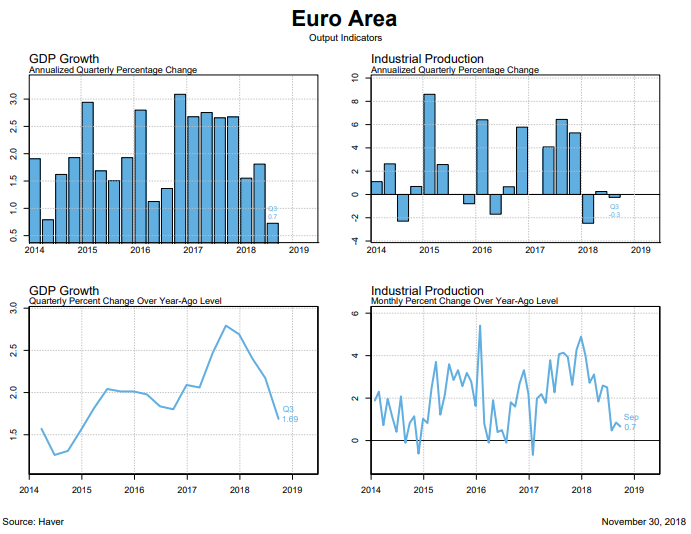The Euro Area Economy Is Slowing, Particularly In Its Factories
The OECD expects the euro area economy to continue expanding at a moderate and steady pace, despite ominous signs of global economic and political uncertainty.
Indeed, real GDP increased for the 14th consecutive quarter in Q3, growing 0.7% in the quarter, or by 1.7% y/y. The Euro Zone economy (i.e. the 19 European countries) is projected to expand 1.9% in 2018, 1.8% in 2019 and 1.6%, a slight downgrade from previous OECD forecasts.
Forward-looking indicators for Euro Area production are rather worrying according to Markit, the company that publishes the PMI, and which reports on purchasing managers expectations. Even though Euro Area growth up to recently has been quite strong, the near-term outlook seems much gloomier. The key worries are Brexit, the trade wars, and internal issues relating to Italy’s financial problems.
There is little doubt that factory activity in Europe has been cooling off this year in response to rising protectionism and the trade dispute the U.S. President has launched against China and the European Union.
The PMI manufacturing index for the Euro Zone slipped to 51.5 in November and the index for services fell to 53.1, both the lowest in more than two years. The composite PMI fell to almost its lowest level in four years.

Disclosure: None.



